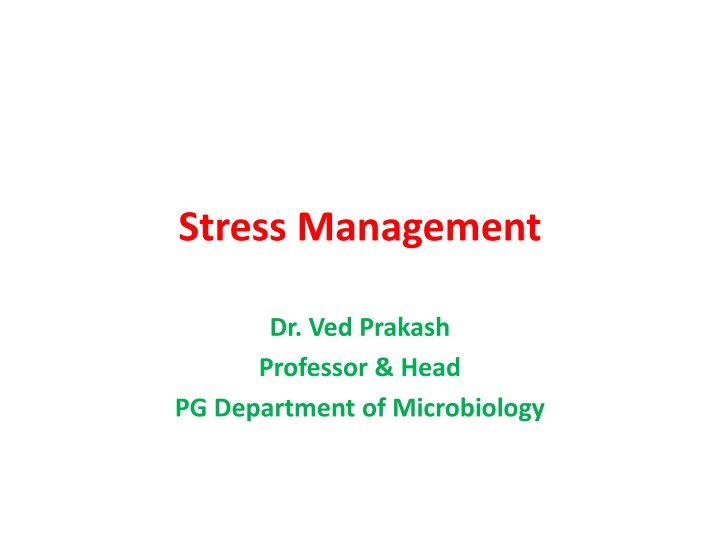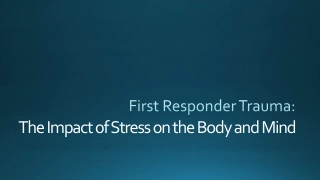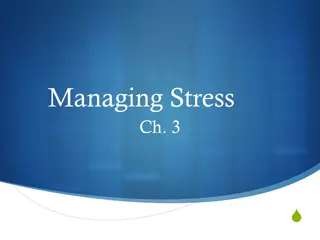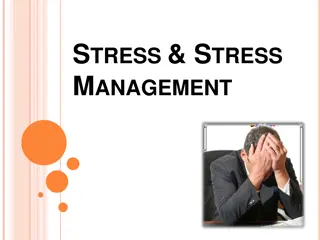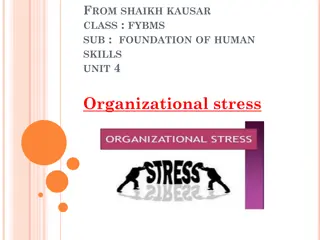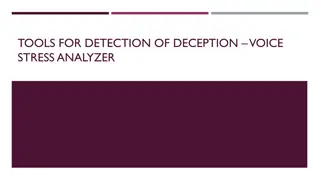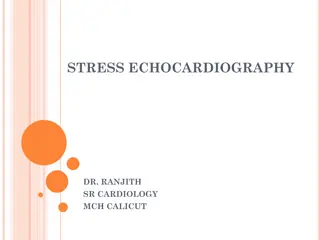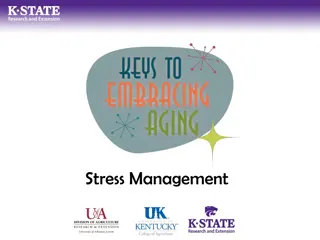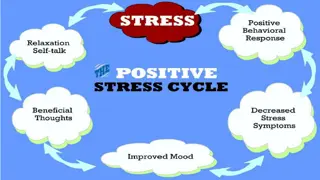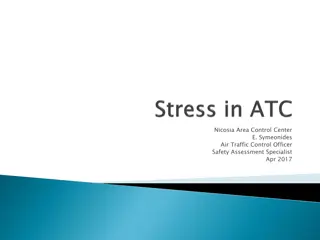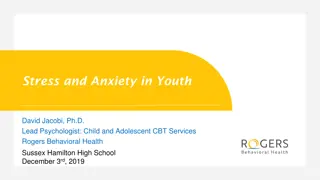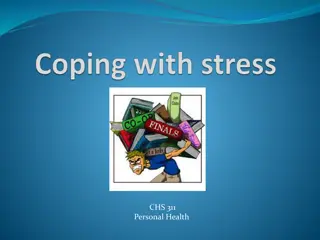Different Types of Stress
Stress is a natural response that can have both positive and negative effects on well-being. Learn about eustress, acute stress, chronic stress, workplace stress, environmental stress, social stress, and traumatic stress to better manage and cope with stressors in daily life.
Download Presentation

Please find below an Image/Link to download the presentation.
The content on the website is provided AS IS for your information and personal use only. It may not be sold, licensed, or shared on other websites without obtaining consent from the author.If you encounter any issues during the download, it is possible that the publisher has removed the file from their server.
You are allowed to download the files provided on this website for personal or commercial use, subject to the condition that they are used lawfully. All files are the property of their respective owners.
The content on the website is provided AS IS for your information and personal use only. It may not be sold, licensed, or shared on other websites without obtaining consent from the author.
E N D
Presentation Transcript
Stress Management Dr. Ved Prakash Professor & Head PG Department of Microbiology
Definition Stress is a natural and adaptive response that your body experiences when faced with challenges, threats, or demands. It's your body's way of preparing to confront a situation, often referred to as the "fight or flight" response. Stress can be physical, mental, or emotional and can have both positive and negative effects on your well- being.
There are three main types of stress: Eustress (Positive Stress): This type of stress is characterized by a positive response to a situation or challenge. It can be motivating and energizing, helping you focus and achieve goals. Eustress often occurs when you feel excited or enthusiastic about something, like starting a new job or taking on a challenging project.
Acute Stress: Acute stress is the most common form of stress and is typically short- lived. It arises from the demands and pressures of everyday life, such as meeting deadlines, handling unexpected issues, or dealing with minor conflicts. When the stressor is removed or resolved, your body returns to its normal state.
Chronic Stress: Chronic stress is long-term and results from ongoing or recurring stressors. It can have harmful effects on your physical and mental health if not managed effectively. Chronic stressors may include persistent financial difficulties, relationship problems, or job dissatisfaction. It can lead to conditions like anxiety, depression, and various physical health issues. In addition to these main types of stress, there are specific categories of stress that people commonly experience:
Workplace Stress: This arises from job-related pressures, such as high workloads, tight deadlines, conflicts with colleagues, or job insecurity. Environmental Stress: Environmental stressors can include factors like noise, pollution, overcrowding, and natural disasters that impact your well-being. Social Stress: Social stressors involve challenges related to relationships, such as family conflicts, social isolation, or peer pressure.
Traumatic Stress: Traumatic stress results from exposure to extreme and distressing events, such as accidents, natural disasters, violence, or military combat. Financial Stress: This type of stress occurs due to financial challenges, including debt, unemployment, or financial insecurity. Physiological Stress: Physiological stress can result from physical factors like illness, injury, or chronic health conditions, and it can exacerbate emotional and mental stress.
Management of Stress Managing stress is important for maintaining your physical and mental well-being. While it's impossible to completely eliminate stress from your life, there are various strategies you can use to effectively manage and reduce it. Here are some tips: Identify Stressors: Recognize the sources of your stress. Sometimes, just knowing what's causing your stress can help you address it more effectively.
Practice Deep Breathing: Deep, slow breaths can help calm your nervous system. Try inhaling for a count of four, holding for four, and exhaling for four. Repeat several times. Exercise Regularly: Physical activity is a great stress reliever. It releases endorphins, which are natural mood lifters. Find an activity you enjoy, whether it's walking, running, swimming, or yoga. Get Enough Sleep: Lack of sleep can exacerbate stress. Aim for 7-9 hours of quality sleep per night. Establish a regular sleep schedule and create a relaxing bedtime routine.
Eat a Balanced Diet: Proper nutrition is essential for your overall well-being. Avoid excessive caffeine, sugar, and processed foods, as they can contribute to stress. Practice Mindfulness and Meditation: These techniques can help you stay present and reduce racing thoughts. They're great for managing stress over the long term. Time Management: Use effective time management techniques to prioritize tasks and reduce the feeling of being overwhelmed. Creating a to-do list can be helpful.
Set Realistic Goals: Unrealistic expectations can lead to stress. Set achievable goals and break them down into smaller, manageable steps. Seek Social Support: Talk to friends, family, or a therapist about your stressors. Sometimes, just sharing your feelings can provide relief. Limit Screen Time: Excessive use of technology and social media can contribute to stress. Set boundaries on screen time and consider taking breaks from it. Relaxation Techniques: Explore relaxation methods such as progressive muscle relaxation, guided imagery, or aromatherapy to help calm your mind and body.
Engage in Hobbies: Doing things you enjoy can be a great stress reliever. Whether it's reading, painting, gardening, or playing a musical instrument, make time for your hobbies. Practice Gratitude: Keep a gratitude journal and write down things you're thankful for. Focusing on the positive aspects of life can shift your perspective. Limit Stimulants: Reduce your intake of caffeine and alcohol. These substances can increase feelings of anxiety and stress. Learn to Say No: Don't overcommit yourself. It's okay to decline additional responsibilities when you're feeling overwhelmed.
Professional Help: If your stress becomes chronic or severe, consider seeking help from a therapist or counselor. They can provide you with coping strategies tailored to your specific needs. Mindful Breathing: Throughout the day, take short breaks to practice mindful breathing. Focus on your breath and let go of tension with each exhale. Progressive Muscle Relaxation: Tense and then release each muscle group in your body, starting from your toes and working your way up to your head. This can help relieve physical tension.
